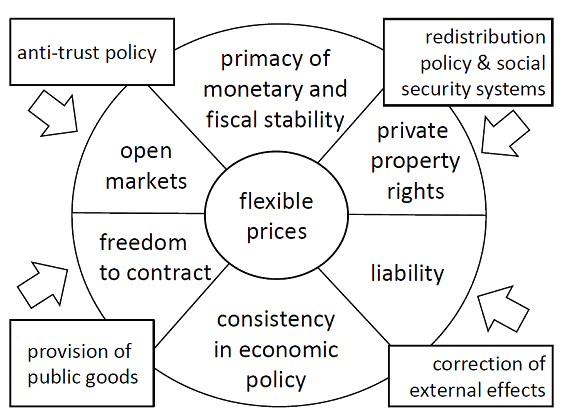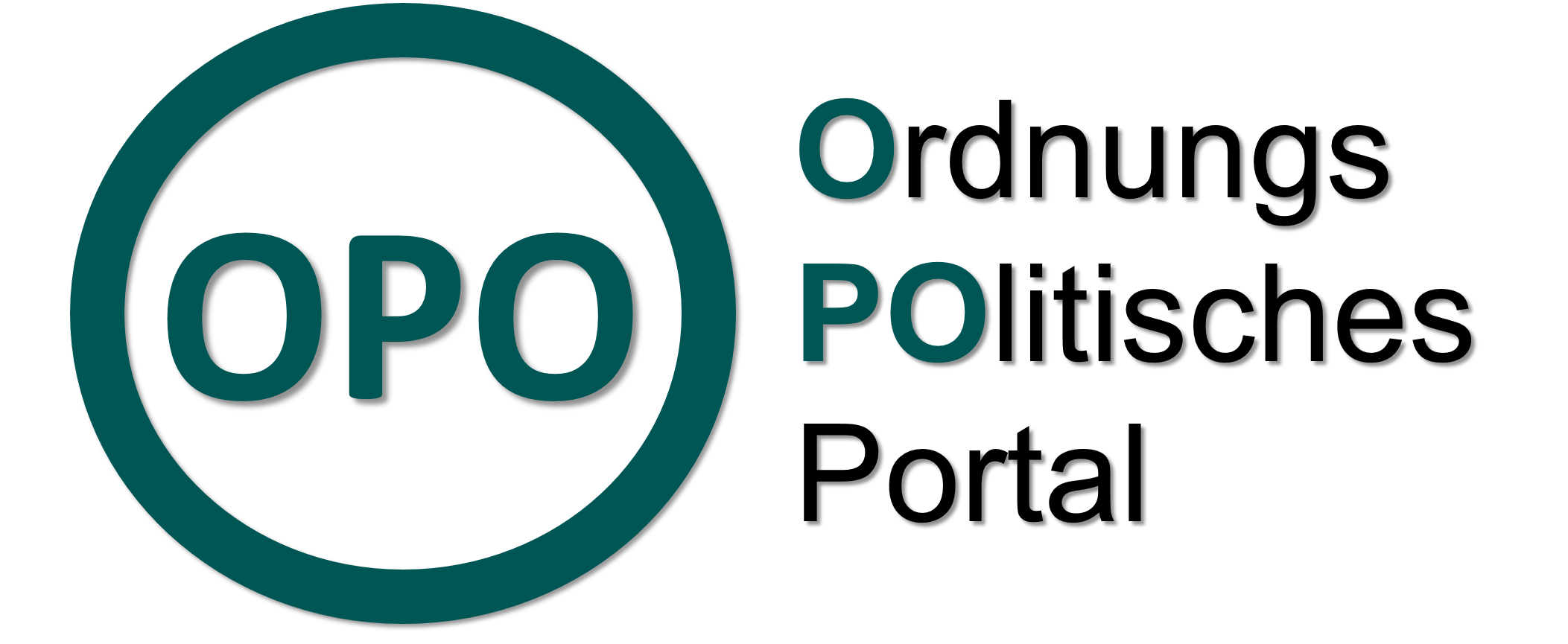Theory
German Ordnungspolitik focusses on a market system that rejects both socialism and a centrally planned economy on the one hand, as well as laissez-faire capitalism on the other. In contrast to those two extremes, Ordnungspolitik combines private enterprise with state-directed measures to establish fair competition, low inflation, and social welfare.
Perhaps the best basic theoretical approach to the market economy order is that of Walter Eucken (1952/90). It includes a regulatory framework for a functioning price system, monetary stability, freedom of contracts and private property, open markets but also the principle of liability and the principle of constancy of economic policy. These constitutive principles are accompanied by so-called regulative principles, such as the necessity for a strict competition policy, the internalizing of external effects and a few social measures. Walter Eucken’s ideas, (with a few modifications) were the engine behind the creation of the post-World War II German Social Market Economy and its workings towards the subsequent “economic miracle”.
In reality, the Social Market Economy was created and implemented in West Germany by Ludwig Erhard, the first Director of Economics in the western occupation zones, then Minister of Economics, and later in the 1960’s, Chancellor of the Federal Republic of Germany – So began the development of an ordo-liberal approach.

Principles of a Market Economy Order (W. Eucken)
Literature:
Eucken, Walter (1952/90) „Grundsätze der Wirtschaftspolitik“, 6th ed., Tübingen.
